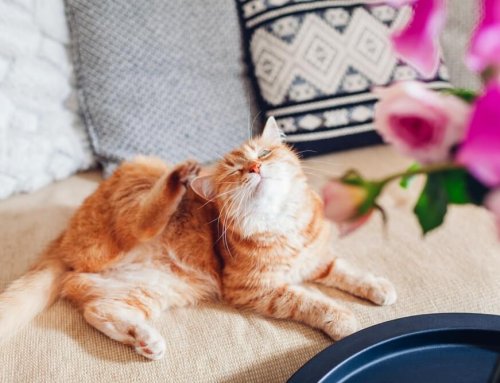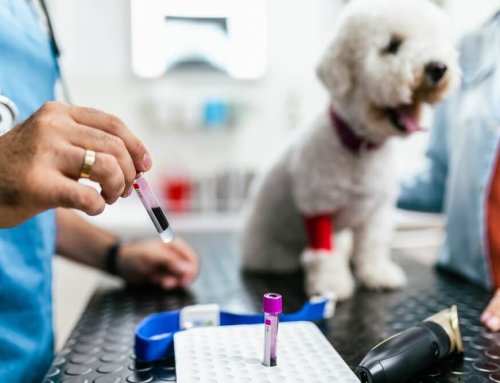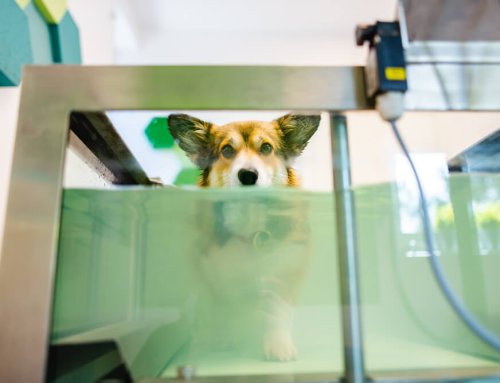Independence Day is a time for celebration and fun, but holiday gatherings can be overwhelming or downright dangerous for pets. As July Fourth approaches, follow our 360 Pet Medical team’s list of do’s and don’ts to keep your furry pal safe, happy, and healthy this holiday season.
DO keep your pet indoors on July Fourth
The safest place for your pet on July Fourth is inside your home. Between fireworks shows and scorching summer temperatures—depending on how Bozeman feels that day—your furry pal likely would prefer relaxing inside your cool, quiet home instead of taking part in the festivities. Take your pet for a walk early in the morning to beat the heat, crowds, and fireworks, and squeeze in one last bathroom break before dusk to ensure your four-legged friend is back indoors before the show starts.
DON’T invite your pet to your cookout
When the grill is fired up and sending out delicious aromas of barbecued meat, you may have unexpected guests in the form of hungry neighbors and drooling pets. While your neighbors can stay, don’t give your pet a plate. Many dishes that grace picnic tables on the Fourth are dangerous for pets, including:
- Grilled meats — Bones from a rack of ribs or a platter of steaks can shatter when your pet chews on them, skewering their mouth or throat. Plus, they can lodge in the intestinal tract, requiring emergency surgical removal before they puncture the intestinal walls and cause sepsis.
- Fruit trays — While most fruits are fine in moderation, grapes can lead to kidney failure in your pet.
- Side salads — “Salads” like potato salad, pasta salad, and coleslaw are perfect sides for a barbecue, but the onions, garlic, and large amounts of mayonnaise and vinegar can be a problem for your pet. Onions and garlic can cause anemia, while ingredients high in fat can trigger pancreatitis.
- Desserts — Chocolate and xylitol are common ingredients in a variety of desserts, but these items can cause side effects that range from mild to life-threatening.
DO update your pet’s identification forms
More pets go missing around July Fourth than any other time of the year, so ensure your four-legged friend comes home safely to you via current identification sources. Update their collar ID tags and ensure they are not worn or illegible. Also, have your pet microchipped if they aren’t already and verify that the microchip registration information is current and correct so you can be contacted if your pet runs away and is found.
DON’T let your pet near any type of fireworks
Although sparklers don’t make much noise and shouldn’t frighten pets, cats and dogs may be intrigued by the sparks and venture too close. Fireworks of any sort should be off limits to your furry pal, and keep matches and lighters out of reach, too. If you set off fireworks in your own yard, pick up all debris afterward to ensure your pet does not ingest it.
DO design a sanctuary for your pet
The most social butterflies still tend to be anxious around loud sounds and large crowds, so create a peaceful haven for your pet indoors. Pick a quiet room that muffles ear-splitting fireworks booms, bangs, and whistles, and set up a private pet sanctuary. Design a resting place your pet can curl up in and hide if they want, and offer plenty of tasty distractions to take their mind off the chaos outside the door. Long-lasting chews, food puzzles, and hidden treats scattered around the room can provide an excellent diversion during your local fireworks show.
DON’T forget to ask for anti-anxiety medication if your pet has noise aversion

If your pet cowers in fear at the sound of the vacuum, fireworks are almost certain to freak them out. Pets who exhibit noise aversion signs could benefit from anti-anxiety medication for the big event, but you should do a trial run before the festivities to determine the effect the medication will have. If your pet shows any of the following noise aversion indicators, speak to our team about anti-anxiety options:
- Drooling
- Pacing
- Restlessness
- Hiding
- Clinginess
- Excessive vocalization
- Inappropriate elimination
Some pets may become destructive in their attempt to hide or escape, while others can harm themselves by overgrooming (i.e., licking) in an effort to soothe their anxiety. Any level of noise aversion should be managed, as this condition worsens over time without effective treatment.
While the Fourth is an excellent day to celebrate our independence, remember that your pet is solely dependent on you for their health and safety. Schedule an appointment with our 360 Pet Medical team to keep your four-legged friend healthy, safe, and calm with preventive medicine, microchipping, and anti-anxiety prescriptions.








Leave A Comment